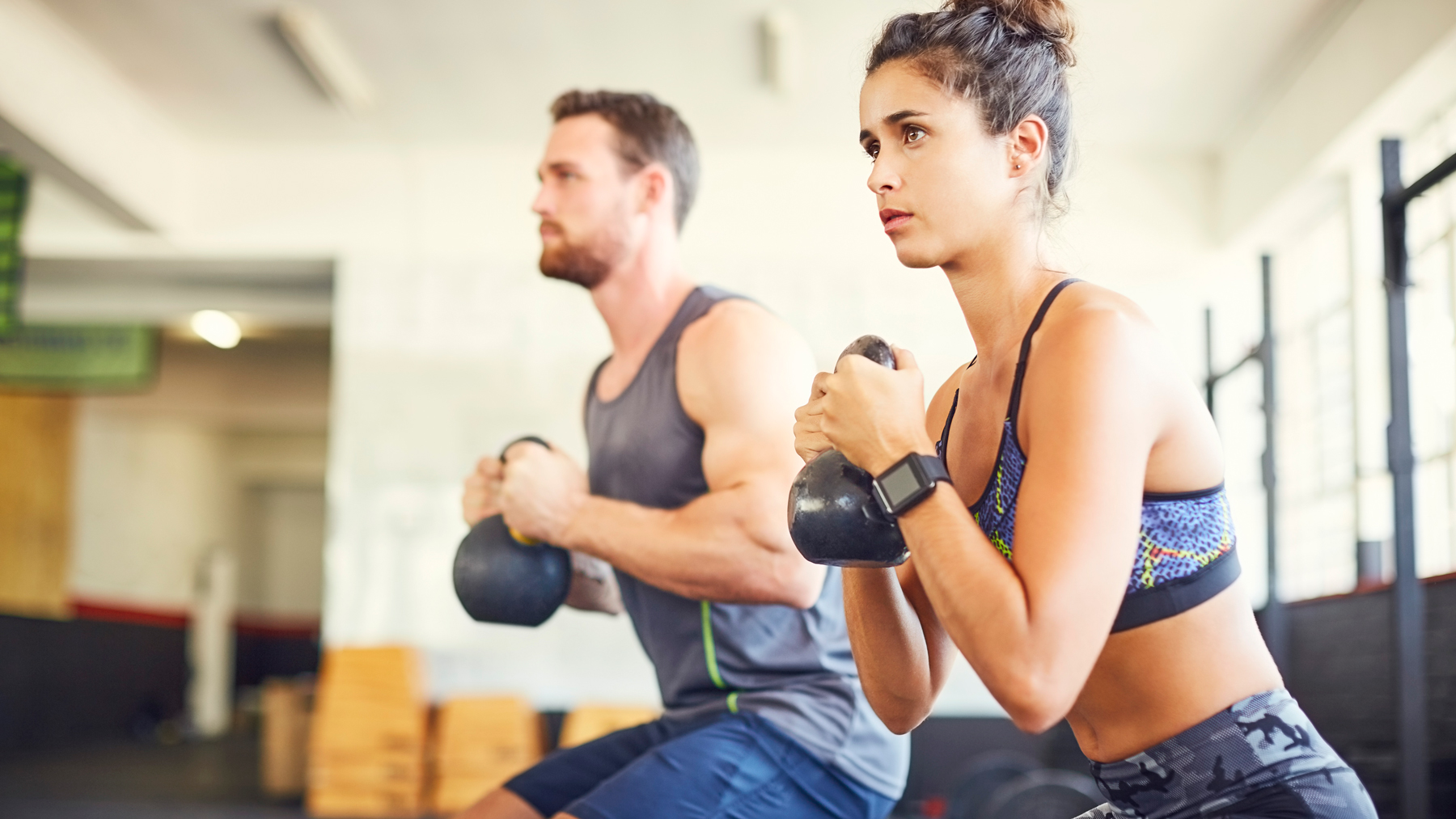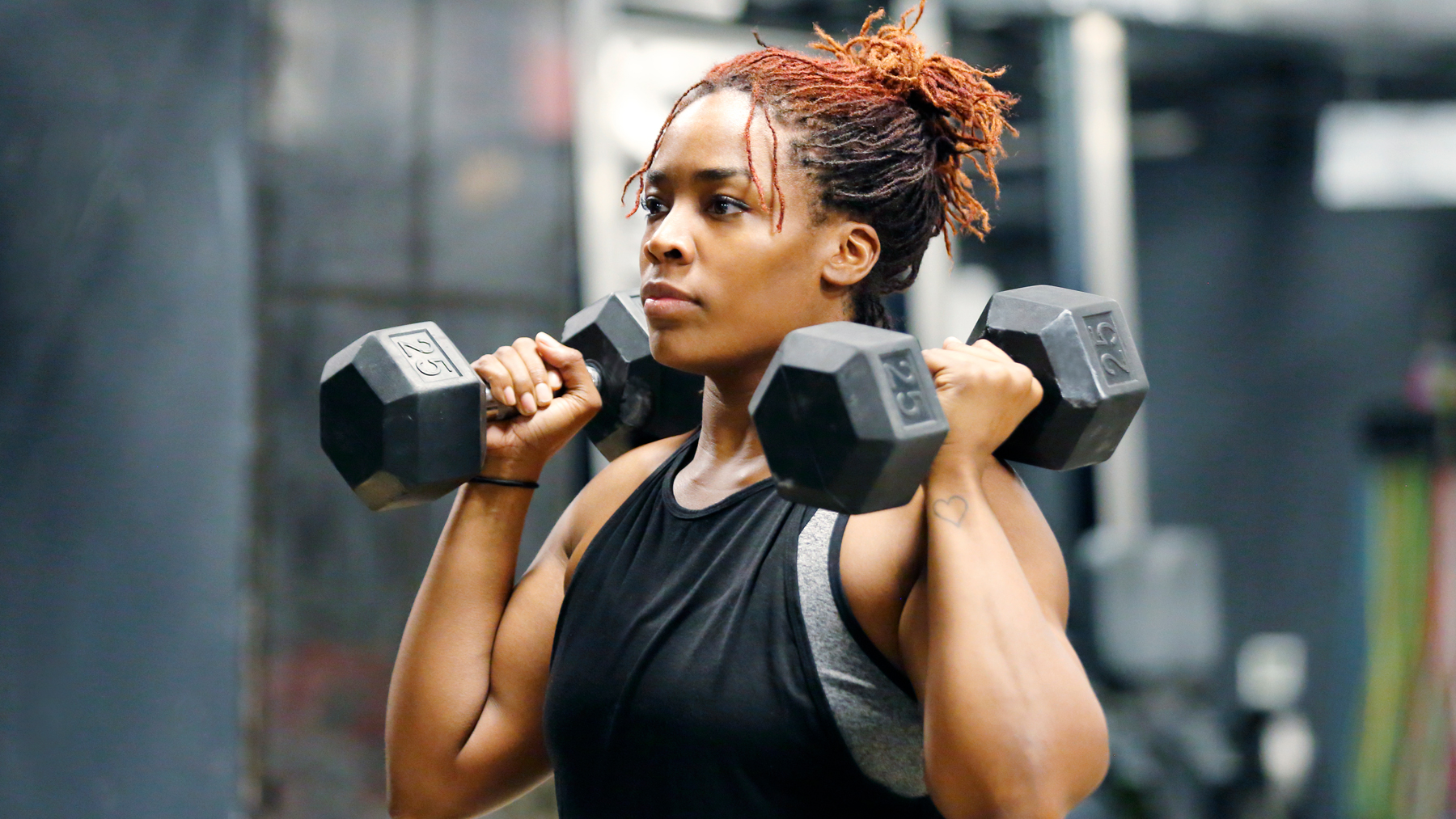Women can gain equal strength from the same resistance training as men, study finds
Research reveals that women don't have to train harder to achieve similar strength gains to men


Start your week with achievable workout ideas, health tips and wellbeing advice in your inbox.
You are now subscribed
Your newsletter sign-up was successful
Muscle and strength building is a much more popular fitness trend for women these days. Despite the difference in body makeup between males and females, it has been revealed that women can experience the same strength gains as men from resistance training.
There's lots of men and women who don't want to grow large muscles but still want to tone major muscle groups like the legs and glutes, so they might choose to add a set of best resistance bands to their resistance training.
However, what about women who do wish to grow their muscles more substantially, is it more work?
There is good news according to the analysis of one study that found women don't have to train harder than men to achieve the same upper body gains as them.
The research paper aimed to compare the strength gains of elbow flexors between the two genders after completing ten weeks of the same resistance training program.

Both the male and female participants followed the same 10-week program that required them to train twice a week. The sessions saw them complete three sets of exercises, like chest press and lateral pulldowns, using a load that allowed them between 8 to 12 reps before achieving momentary muscular failure.
The researchers found that despite physiological and hormonal differences between genders, women demonstrated the same relative strength gains as men.
Start your week with achievable workout ideas, health tips and wellbeing advice in your inbox.
The study authors wrote, "It appears there is presently no evidence of a need to design different resistance training protocols for men and women. Mostly, one should not expect to find limitations in upper body strength development in women."
There could be limitations to the results as perhaps the study length wasn't long enough to allow significant muscle growth. Nonetheless, as long as you are consistent with your resistance training and aim to increase your weight (a set of best adjustable dumbbells is ideal for this) as you train then you should notice results.
Don't forget to consume plenty of protein as this plays a vital role in repairing, building, and maintaining muscle mass. If you aren't regularly eating protein-rich foods such as lean meats, eggs, beans, or pulses then you should consider buying one of the best protein powders for women. Protein powders can be blended into a smoothie or added to a bowl of oats or pancake mix.
And if you are working on increasing muscle mass, using techniques like progressive overload then you are likely to experience some bodily tensions as your muscles work to expand. Any tensions or pains can be reduced by using one of the best foam roller entries after any workout.
Jessica is an experienced fitness writer with a passion for running. Her career in journalism began in local news and she holds a Masters in journalism. Jessica has previously written for Runners World, penning news and features on fitness, sportswear and nutrition.
When she isn't writing up news and features for Fit&Well covering topics ranging from muscle building, to yoga, to female health and so on, she will be outdoors somewhere, testing out the latest fitness equipment and accessories to help others find top products for their own fitness journeys. Her testing pairs up nicely with her love for running. She recently branched out to running 10Ks and is trying to improve her time before moving on to larger races. Jessica also enjoys building on her strength in the gym and is a believer in health and wellness beginning in the kitchen. She shares all of this on her running Instagram account @jessrunshere which she uses for accountability and for connecting with like-minded fitness lovers.
